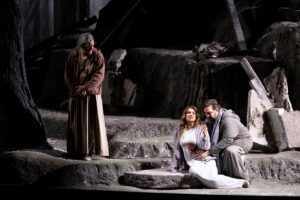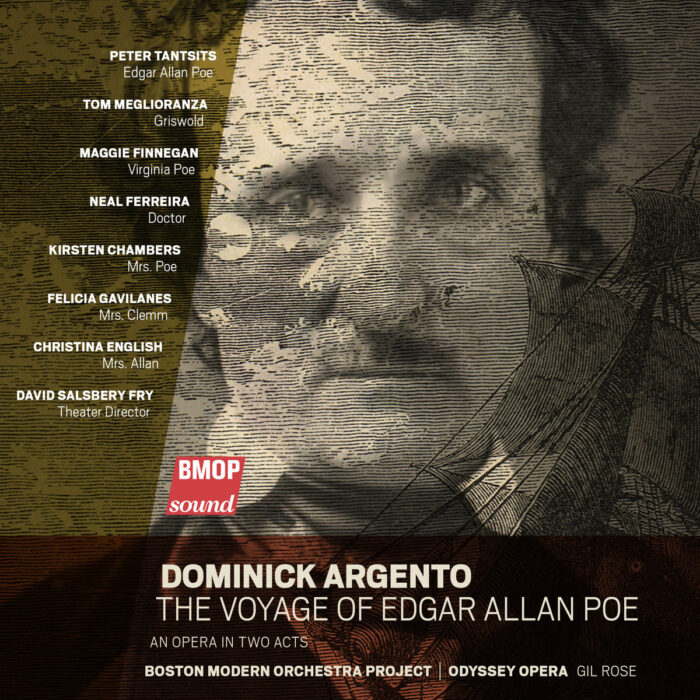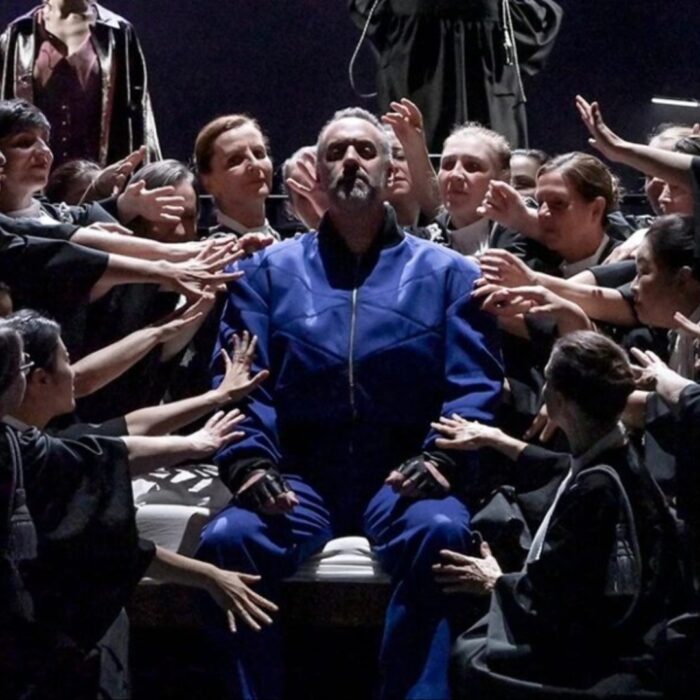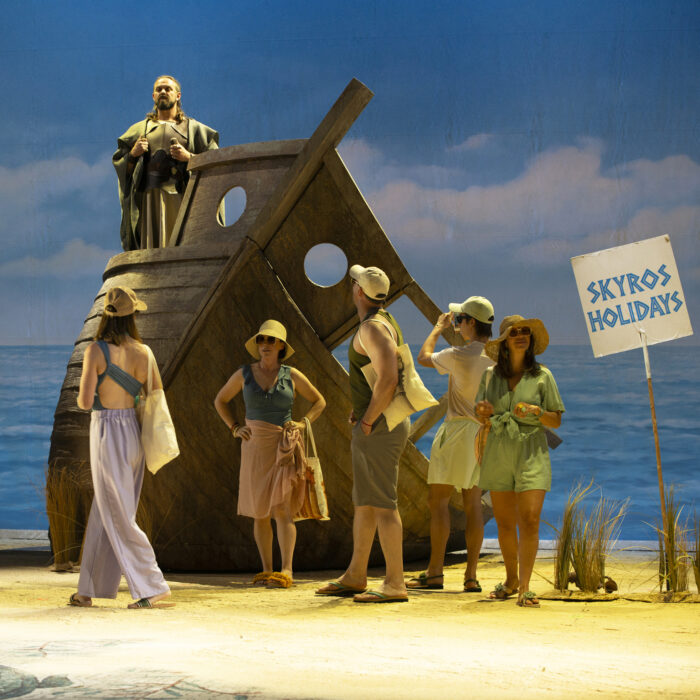
Teatro alla Scala 2024-2025 Review: La Forza del Destino
An Impressive Evening with Great Performances from Ludovic Tézier & Anna Netrebko
By Bernardo Gaitan(Credit: Brescia – Amisano © Teatro alla Scala)
Legend has it that “La forza del destino” is a cursed opera, associated with tragedies that seem to haunt every new production. From companies falling into bankruptcy after staging it, to severe technical and production errors arising after the famous overture, and even the deaths of artists linked to the work—this reputation seems to have marked its history. This year, however, Teatro alla Scala defied that superstition by choosing this opera to open its 2024-25 season, an especially significant event since “La forza” hadn’t inaugurated a Scala season since 1965. Fortunately, this year’s production avoided major misfortunes, save for one minor incident which, though anecdotal, had no significant consequences.
The “mini-misfortune” revolved around the tenor role, marked by unexpected instability. Originally, Jonas Kaufmann was announced to play Don Alvaro, but he canceled weeks before the premiere due to family reasons. In an intriguing coincidence, the Gran Teatre del Liceu in Barcelona was staging the same opera with Brian Jagde in the leading role, which facilitated his emergency inclusion at La Scala and allowed him to perform at the traditional Dec. 7th opening night. However, the birth of Jagde’s child forced him to cancel some of the scheduled performances in Milan. In his absence, Luciano Ganci once again came to the rescue of the Milanese theater, recalling his impromptu recital appearance after the cancellation of the Hommage to Puccini on Nov. 29th, which had involved the opera’s leading stars. For the Dec. 19th performance, which is the subject of this review, Jagde returned to the stage, portraying the ill-fated Spanish lover.
In terms of media impact, La Scala’s new production was a resounding success. The opening night on Dec. 7th, broadcast live on Italy’s main television channel Rai1, achieved a 10.2% audience share during its four-hour runtime, equivalent to over 1.6 million viewers. This percentage surpasses last year’s results, when “Don Carlo” was viewed by 1.4 million people, though the 2019 “Tosca” record, with 2.85 million viewers, remains unbeaten. A common denominator among these three productions—besides Riccardo Chailly’s musical direction—is the presence of Russian soprano Anna Netrebko in the leading role. It is likely that her figure significantly contributed to capturing such a vast audience.
Thoughtful Production
The stage direction of this renowned title was entrusted to the experienced Leo Muscato, who delivered a meticulous and thoughtful interpretation of the theme of war, reimagining the work through a timeless historical perspective. The Italian director set the scenes across different eras, ranging from the 18th century in the first act to contemporary times in the fourth. This decision underscores the universal and tragic message of the opera: war is a constant in human history, regardless of the period in which it is set. While this choice might seem dramaturgically confusing, it proved to be an effective way to reinforce the central concept. The bold reinterpretation of this Verdi classic in a modern key resulted in a spectacular production, possibly the most impressive at La Scala in the past five years.
The success of this creative proposal also lies in the talent of Federica Parolini, who designed a visually striking set that stood out for both its beauty and functionality. A giant halo floated above the revolving stage, seamlessly transforming scenes and facilitating a continuous narrative flow. Among the most memorable visual moments were the candlelit forest backdrop behind the convent in the second act and the raw, contemporary battlefield of the fourth act, which was especially poignant. Silvia Aymonino successfully met the challenge of designing costumes that spanned different eras for the same characters. From the Napoleonic-style soldiers’ uniforms in the third act to a modern representation in the fourth, where characters wore contemporary uniforms or Red Cross paramedics’ characteristic red overalls, her attention to detail added coherence and realism to the staging. Complementing these elements, Alessandro Verazzi provided carefully crafted lighting, using chiaroscuro effects to heighten the dramatic intensity of each scene.
Excellent Vocals
On the vocal front, Anna Netrebko shone as Donna Leonora, delivering an intense and emotive interpretation. The Russian soprano demonstrated her usual mastery of acting, supported by solid vocal technique. With a robust timbre and powerful high notes, her rendition of “Me, pellegrina ed orfana” was noteworthy, though slightly swallowed in the low register at times. Her “Son Guinta” showed her intensity and commitment to the role each time crescendoing with the musical phrase while her “La Vergine Degli Angeli” displayed a pure piano sound that easily floated into the theater. However, it was in the iconic “Pace, pace mio Dio” of the fourth act where Netrebko left her most lasting impression, showcasing remarkable histrionic intensity and technical control, particularly in her beautiful floating high notes and enviable fiato, which exemplified her dominance of the repertoire.
In the role of Don Alvaro, Brian Jagde displayed a convincing stage presence. While his performance in the fourth act duet “Le minacce, i fieri accenti” was respectable, the aria “O tu che in seno agli angeli” revealed his interpretive skill showcasing an expressive quality to his voice. Also notable was the final trio which showed Jagde’s dynamic nuances and legato phrases. However, his passaggio remains unresolved, as the shift between registers is quite noticeable. Although his powerful high notes pose no difficulty, the initial notes above the passaggio lack proper placement. Perfecting the “alla italiana” style could elevate his performance to another level.
The undisputed triumph of the evening belonged to Ludovic Tézier as Don Carlo di Vargas. With an impeccable vocal and dramatic performance, the celebrated French baritone delivered a Don Carlo of great emotional depth and timbral richness. His aria “Urna fatale del mio destino” was a magical moment that reaffirmed his status as one of the world’s most in-demand baritones. His upper register is imposing, possessing a nearly hypnotic squillo. His vocal power was so pronounced that, during the third act, his exceptionally well-placed and studied high notes overshadowed Jagde’s melodic lines—an exceedingly rare phenomenon where the baritone outshines the tenor musical line.
Standing out for his vocal authority and the quality of his lower register, Alexander Vinogradov triumphed as Padre Guardiano, particularly in the second act duet with Netrebko and the final scene “Non imprecare, umiliata,” where his acting ability and stage presence deeply moved the audience. Meanwhile, Marco Filippo Romano brought a touch of lightness to Verdi’s drama with a Fra Melitone full of energy and comedic flair, excelling in his soliloquy “Toh! Toh! Poffare il mondo!” which earned him enthusiastic applause from the audience.
With a slightly opaque yet beautiful timbre and some projection details to refine, Vasilisa Berzhanskaya delivered an extroverted and characterful Preziosilla. Her energetic stage presence culminated in an apotheotic third act, closing with the vibrant “Rataplan della gloria.” Tenor Carlo Bosi and bass Fabrizio Beggi contributed solid performances in their roles as Mastro Trabuco and Marchese di Calatrava, respectively, leaving a memorable impression despite their brief appearances.
Riccardo Chailly’s musical direction, the cornerstone of this production, stood out for its ability to masterfully capture the orchestral nuances and dramatic contrasts of Verdi’s score. From the frenetic and iconic overture to delicate instrumental passages like “Attenti al gioco, attenti” and the pianissimo finale, Chailly’s baton masterfully balanced dramatic tension and lyricism, guiding the Teatro alla Scala Orchestra to an extraordinarily rich interpretation. The Teatro alla Scala Chorus, under Alberto Malazzi, reaffirmed its habitual excellence, shining particularly in “Olà, olà, olà!” and the vibrant Rataplan. The energy and precision of the large cast of extras and dancers further contributed to the resounding vitality of this unforgettable production.



